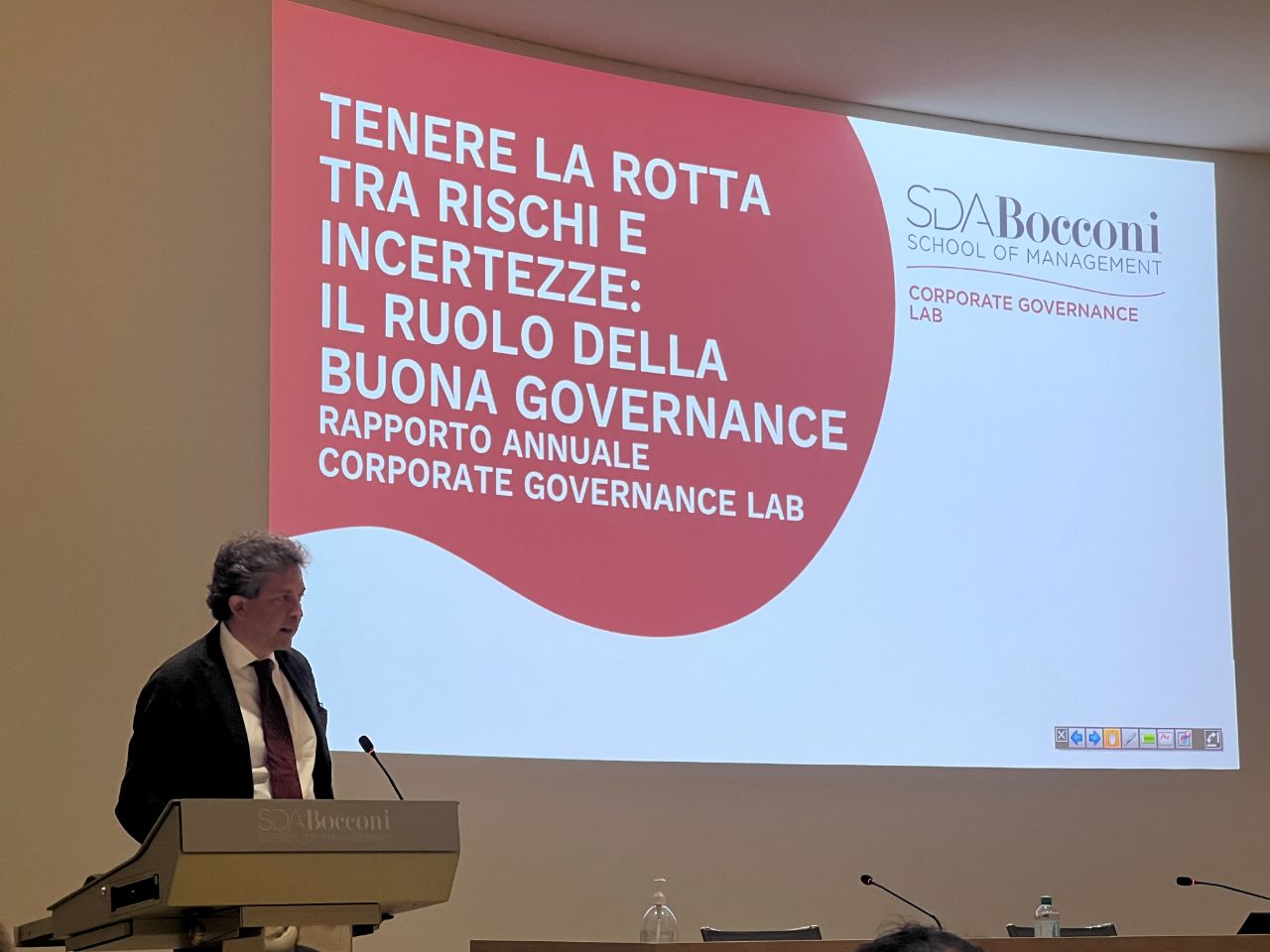News

Banca Generali together with SDA Bocconi to improve the governance of Italian SMEs
The 771 companies that have improved their top management structure perform better and risk less when investing abroad: this is what emerges from the report of the Corporate Governance Lab of SDA Bocconi in collaboration with Banca Generali.
The report was presented yesterday evening in Milan in the Aula Magna of SDA Bocconi by the head of the Observatory, Alessandro Minichilli, and by our head of the Family Protection service of Banca Generali, Marzio Albonico.
"The results of the Corporate Governance Lab positively confirm - despite the period of crisis - the direct correlation between corporate governance and financial results. This is a concept that has become increasingly evident from the comparison with companies in the area and that has led us to develop an entire consulting module ad hoc for our clients-entrepreneurs. Our aim now is to integrate the results and best practices that emerge from the Observatory into our open banking model, so as to provide our clients with accurate, customised solutions for taking care of their business assets in a market scenario made increasingly complex by geopolitical, inflationary and recovery-related uncertainties," states Andrea Ragaini, Deputy General Manager of Banca Generali.
Italian companies with more evolved governance models held up better during the pandemic period, and were able to assess more correctly the risks arising from internationalization, investing more in safer countries. SDA Bocconi's Corporate Governance Lab's Report 2022 considers the two-year period 2018-2020 and analyzes all 5,398 Italian companies with a turnover of more than €50 million, monitoring their governance and ownership structure.
Each year, the Corporate Governance Index (CGLab) is calculated for each company on the basis of five parameters: the existence of a Board of Directors, individual leadership (i.e., the presence of a single executive leader), the presence of external directors, the separation of the offices of president and CEO, and the diversity of the Board, i.e., the heterogeneity of the Board in terms of gender, age and geographical origin.
All metrics moved in a positive direction: diversity increased in 229 companies, board membership was introduced and opened to outside directors in 79 and 182 cases, respectively. They separated the positions of chairman and CEO in 377 companies, and 251 moved to individual leadership. There were 771 firms with a growing ICG, 14% of the total.
A first important result that emerged in the report is that, although in the period considered Italian companies on average lost 8.4% of their turnover, companies in which the GCI improved lost 2.3 points less than those in which it worsened. In the latter, in 2020, a loss is more frequent (+7.1 percentage points compared to +5.2 points for companies with a stable index and +4.4 points for companies with an improving index).
An improvement in the index is also associated with a higher probability of paying dividends. In fact, an additional index point leads to an increase of up to 14.9% in the probability of paying dividends. In addition, an additional index point is accompanied by a 7.4% decrease in the need for government support measures. Other important results, which have emerged for the first time on these topics, are to be found in the part of the report devoted to the risk associated with the internationalization of companies. For each of the three risk categories (political, climatic and credit), an analysis of the correlation between risk exposure and ICG was conducted. The result is very clear: companies with better governance manage to assess risks better, reducing their exposure to highly uncertain environments. For example, companies with a higher ICG have a 2.22% chance of being present in countries with low political risk but only a 0.86% chance of being present in countries with high political risk, while the opposite is true for those with a lower ICG index: they have a 1.27% chance of investing in countries with lower risk, against an almost double probability (2.44%) of being in more problematic countries.



/resolutions/res-640x360/139910332_l-(2).jpg)